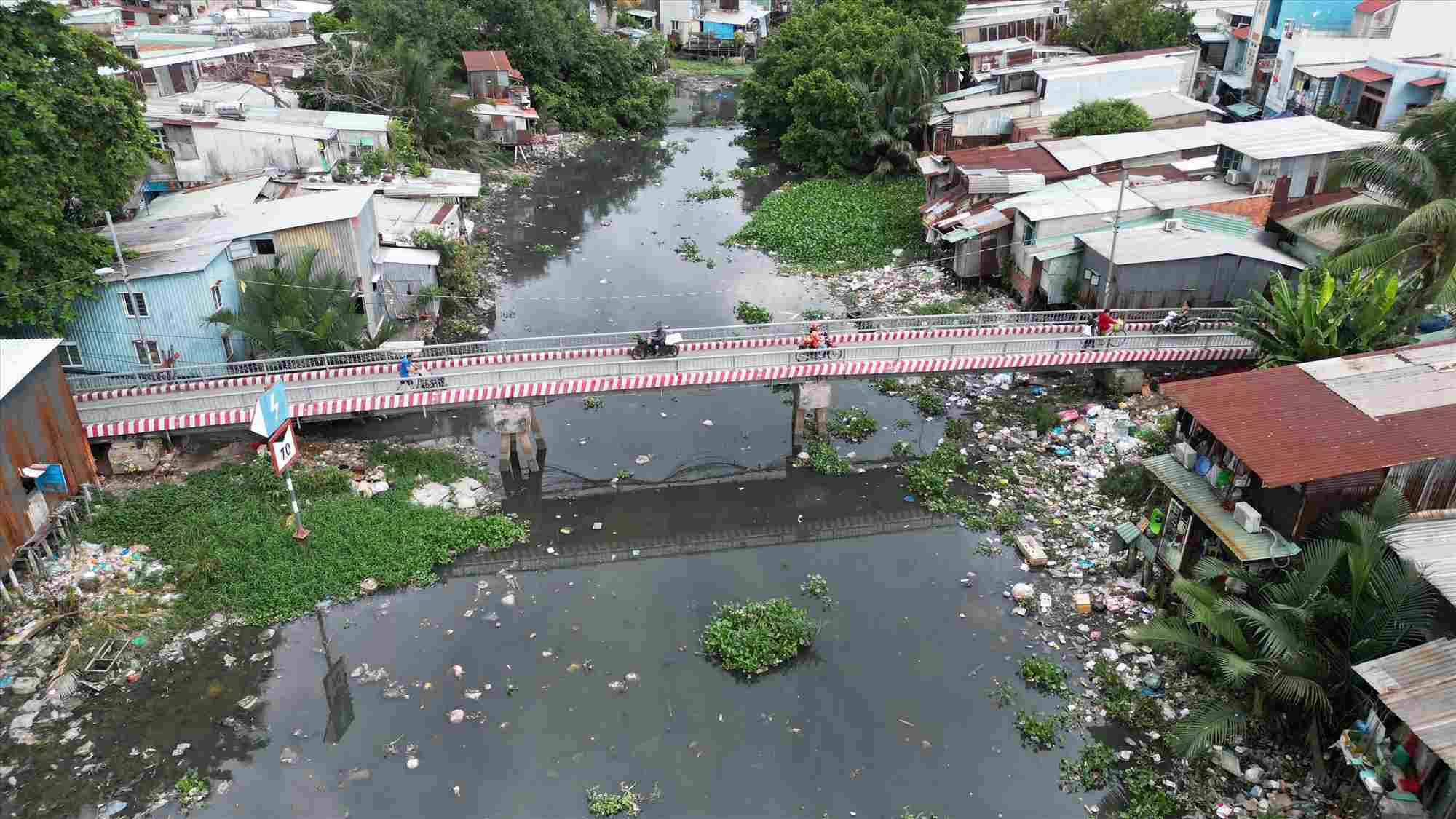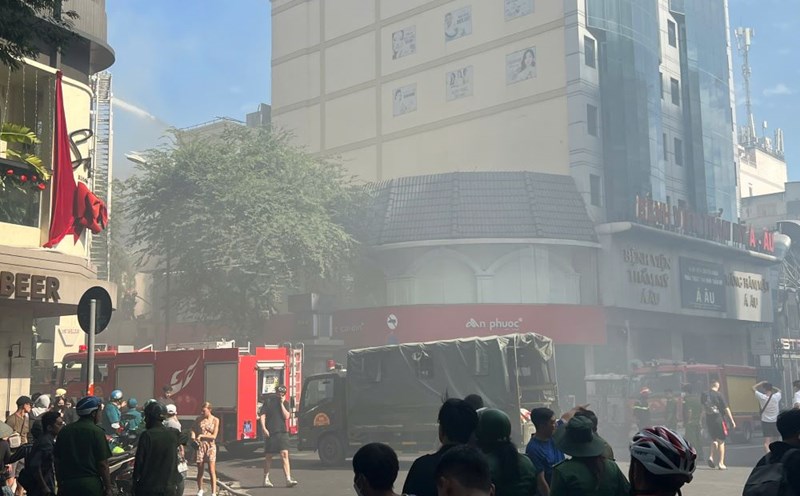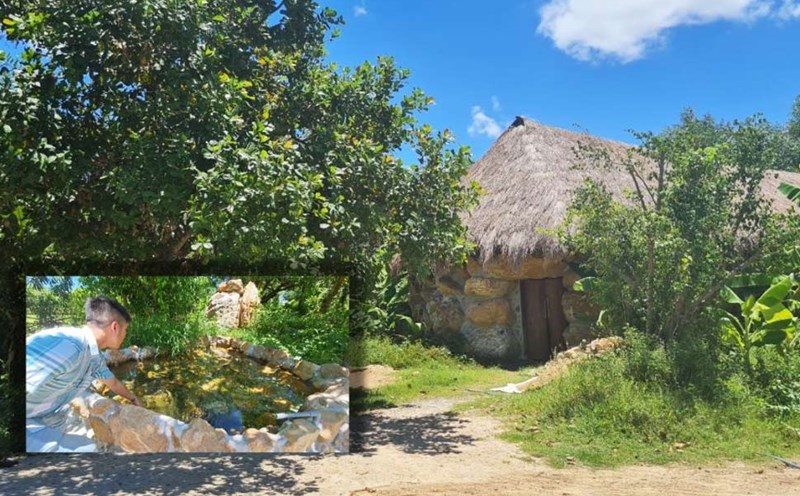Increase support for people to agree to relocate
Xuyen Tam Canal through Binh Thanh District currently has more than 2,000 households waiting for compensation and resettlement plans. One of them is the family of Ms. Thanh Cuc (60 years old) living in a 50m² house, nearly half of which is encroached on the canal. For more than 20 years, her family has lived in makeshift conditions, always waiting for clearance. Therefore, when hearing the news that the city will increase the level of support, Ms. Cuc could not hide her joy. "If I receive enough money to buy a cheap apartment in Thu Duc, I will leave, so that the canal can be cleaned up" - Ms. Cuc shared.
Based on the 2024 Land Law, the Ho Chi Minh City People's Committee has approved 20 flexible policies to support people living along Xuyen Tam canal. In particular, in cases where the recovered land does not violate the law and was used before October 15, 1993, 100% of the land value will be supported, up to a maximum of 160m².
For cases of land use from October 15, 1993 to July 1, 2014, the support level also reaches 100%, but minus financial obligations. For cases of land law violations before July 1, 2014, the support level ranges from 42% to 70% of the compensation value, depending on the purpose of land use. The amount of compensation, support and resettlement for the Xuyen Tam canal renovation project in Binh Thanh district is estimated at more than 13,221 billion VND.
Mr. Phan Ngoc Anh Huy - Head of the Compensation and Site Clearance Board of Binh Thanh District - shared: "Compensation and resettlement are the biggest concerns of the people. With the support level of 100% of the land value, many households have expressed their excitement". Binh Thanh District is expected to complete the handover of the site to the investor before April 2025.
The support policies for the Xuyen Tam canal renovation project will also be applied to the project to renovate the North bank of the Doi canal (District 8), where more than 1,600 houses will be demolished, of which more than 1,000 houses will have to be demolished.
Mr. Nguyen Hong Thuan - Head of the Compensation and Site Clearance Board of District 8 - said: "The whole district has about 15,000 cases that need to be relocated to renovate canals. Currently, the locality is focusing on site clearance for the project to renovate the North bank of the Doi Canal and is expected to basically complete the site recovery by June 2025". Mr. Thuan said that increasing the support level will help people have the conditions to buy resettlement or social housing, thereby easily agreeing to the relocation.

Two big problems
Ho Chi Minh City aims to relocate 46,500 houses along rivers, canals and streams within the next 6 years. However, to implement this plan, the city needs to solve two problems: land fund, resettlement housing and capital.
Currently, there is a serious shortage of land for resettlement areas. Districts must use land from other areas to meet resettlement needs. For example, the Xuyen Tam canal renovation project uses 16 resettlement areas in Binh Thanh, District 10, 12 and Thu Duc City. The Doi canal north bank renovation project arranges resettlement in 8 land areas in District 8, Binh Tan, Tan Phu and Binh Chanh District.
In terms of capital, the two projects to renovate Xuyen Tam Canal and the North bank of Doi Canal alone have a total investment of up to 24,600 billion VND. Therefore, a total of 46,500 houses that need to be relocated will require a huge amount of capital to implement.
A representative of the Ho Chi Minh City Department of Construction said that they are coordinating with the Institute for City Development Studies and related units to conduct sociological surveys, collect statistics, and advise on policies on compensation, support and resettlement for people living on and along canals.
Regarding budget revenue, it will be calculated from leasing, hire-purchase of social housing and exploitation of land fund after clearance.
According to Dr. Pham Tran Hai - Ho Chi Minh City Institute for Development Studies, the most feasible mechanism in the actual conditions of Ho Chi Minh City is to expand the land border - that is, reclaim land outside the corridor boundary on the riverbank and canals. This land fund will be used to build social infrastructure works and can be auctioned to recover the costs of implementing the projects.
In addition, the city needs to prepare financial support, stabilize life, stabilize production and business, support training, career change and job search. "Grasp the thoughts and aspirations of affected people to have appropriate policies, avoid causing stress and frustration for people when carrying out site clearance work" - Mr. Hai said.











